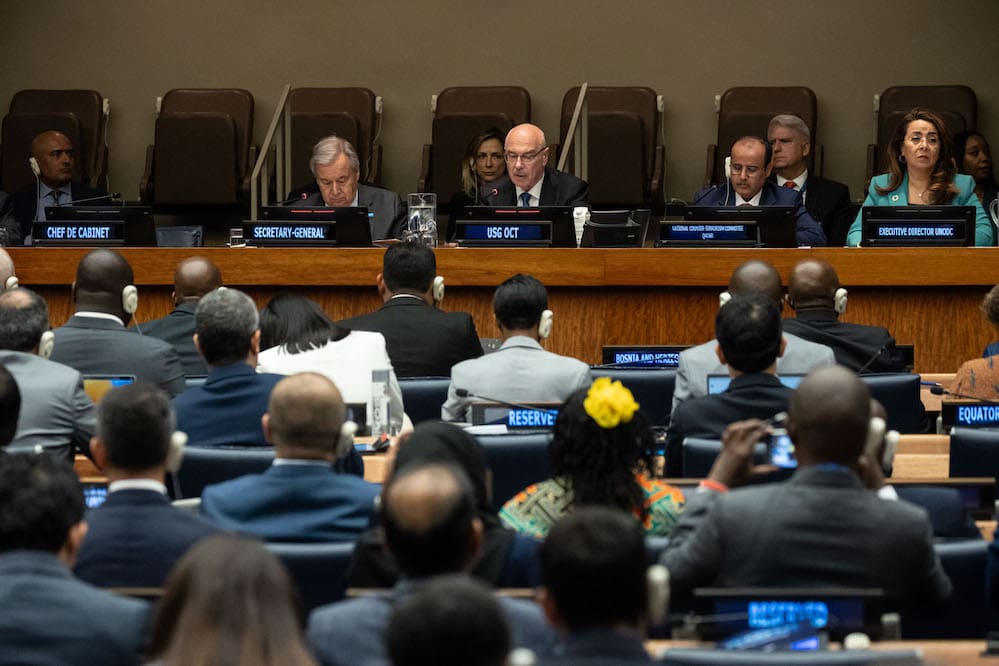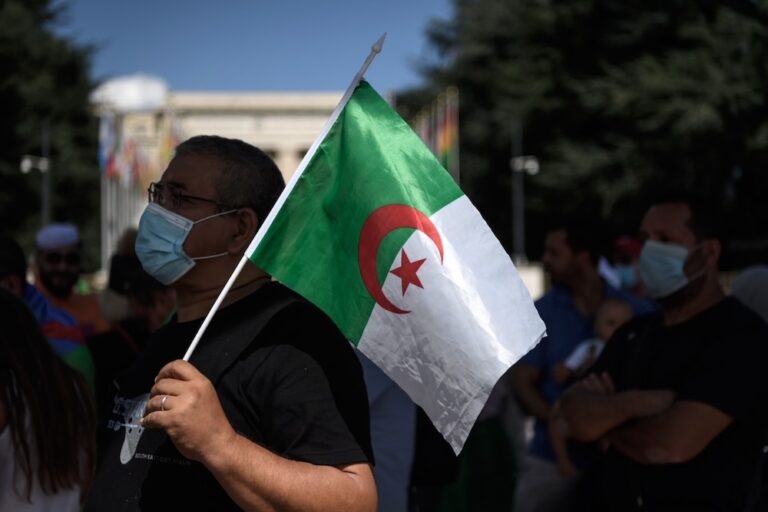"Effective counter-terrorism is not being realized by the widespread, systemic targeting of civil society."
This statement was originally published on CIHRS on 22 June 2023.
The Cairo Institute for Human Rights Studies (CIHRS) welcomes the publication of the Global Study titled “Civil Society Under Attack” on the Impact of Counter-Terrorism Measures on Civil Society and Civic Space by the mandate of the UN Special Rapporteur on the Promotion and Protection of Human Rights and Fundamental Freedoms While Countering Terrorism.
The Global Study makes a landmark contribution to the evidence base on the impact of counter-terrorism laws and policies on the situation of independent civil society organizations. It further documents the correlation between the misuse of broadly defined security measures adopted in the name of countering terrorism and escalating assaults on independent civil society organizations around the world.
The new Global Study concluded that “effective counter-terrorism is not being realized by the widespread, systemic targeting of civil society. Precisely the opposite is true. The kinds of violations revealed by this Study demonstrate that security is not the goal of abusive State practice but rather its opposite, namely the continuance of instability, insecurity, and cultures of impunity and violence.” Regrettably “instability, insecurity and cultures of impunity and violence” are characteristic of many countries in the Middle East and North Africa region and these destructive trends show no sign of diminishing.
CIHRS has been honored to cooperate with the Special Rapporteur’s mandate in the parts of the Global Study related to the Arab region by facilitating consultations with human rights defenders from across the region. CIHRS has also made submissions to the Global Study on countries that clearly exemplify the trend of governments exploiting the permissive counterterrorism environment to label as terrorist non-violent critics, political activists and human rights defenders, as a tool of repression and reprisal. These include Algeria, Egypt, Libya and Palestine.
In Egypt, CIHRS observed: “counterterrorism measures have become the preferred tool utilized in coordination by different branches of the Egyptian government to enforce repression, maintain control and ensures impunity.” In Libya the counter-terrorism law “puts peaceful political opposition and independent voices, including human rights defenders at risk of prolonged imprisonment for exercising their right to free expression.” Similarly in Algeria, the authorities amended the Penal Code, and deliberately expanded the definition of terrorism by presidential decree, in an attempt to stifle peaceful, critical voices by classifying them as terrorists. This resulted in the arrest and trial of hundreds of human rights defenders, journalists, and movement activists. In Palestine, Israeli authorities have branded human rights defenders as terrorists and shut down organizations to “silence opposition to its widespread and systematic human rights violations, war crimes, and crimes against humanity committed against the Palestinian people.”
The Global Study confirmed that societies “where civil society is absent, afraid, cowed, and unable to emerge, are societies made weaker, less participatory, and vulnerable to the conditions conducive to terrorism and violence.” This is what local, regional and international human rights organizations have repeatedly warned about. However, after decades of violations and disregard of human rights, such entrenched patterns require serious action beyond the pledges and propaganda of states that falsely claim to protect and respect human rights in the context of countering terrorism. This requires the development of monitoring and documentation mechanisms at the national and international levels to address human rights violations and hold those responsible to account. While multilateral counterterrorism efforts have expanded in over two decades, since the 11 September 2011 attacks on the United States, these efforts have caused heightened security cooperation between countries while providing a framework for military interventions. Under the pretense of combatting terrorism, authoritarian governments have enacted repressive legislation and evaded accountability for their violations, while benefiting from military, financial, and diplomatic support from democratic governments that claim to be committed to upholding human rights and the rule of law.



